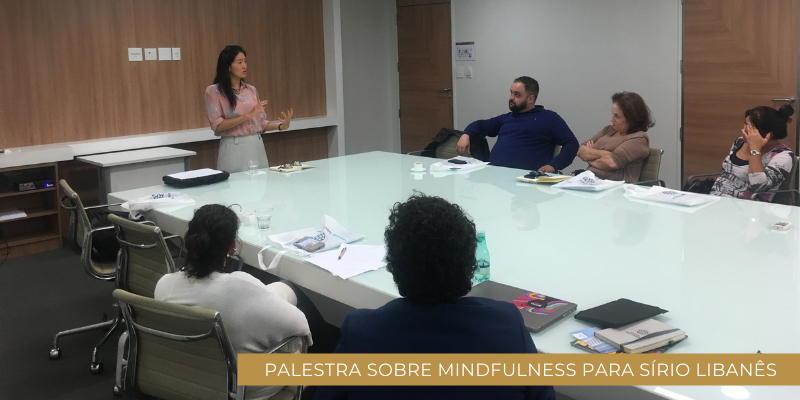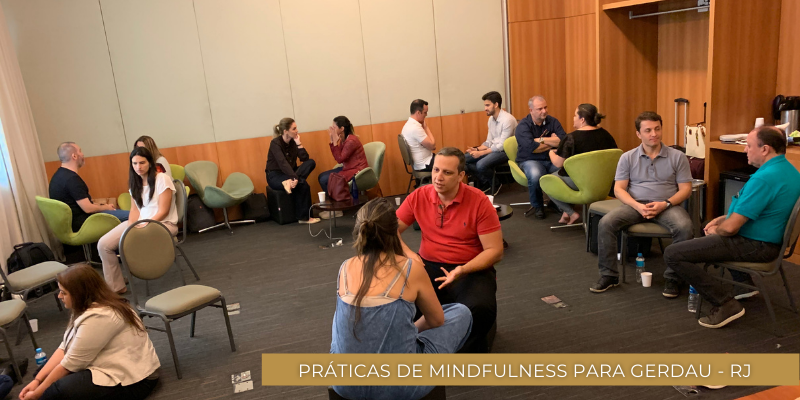What is the difference between Mindfulness and Meditation?
There are many doubts, both in the corporate environment and outside it, about the definition of Mindfulness and Meditation and what differentiates one practice from the other. That's why today I'm here to explain and expand on the definition of Mindfulness.
Mindfulness is still meditation, but meditation on its own is not necessarily Mindfulness.
There are infinite styles of meditation today, courses, books and apps where you can learn to practice, most of them aimed at self-knowledge and serenity, however, due to the religious context associated with them, it often ends up being taboo for many people.
Mindfulness has become popular precisely because of its scientific and therapeutic approach. Although it has its roots in Buddhism, it is a technique devoid of religion, dogma or beliefs.
The translation into Portuguese is 'Full Attention'. By practicing it, you develop the ability to keep your mind in the present moment, improve your body awareness, emotional intelligence, increase concentration and reduce stress, among other benefits.
When you think of meditation, you immediately imagine a person with their eyes closed, spine erect and sitting in the lotus position. Mindfulness transcends this idea, because the state of Full Consciousness becomes part of people's lives from waking up until bedtime, where you are whole in all your activities throughout the day, whether at meals, at work, during physical exercise or simply in a moment of contemplation.
The results are constant and effective. In research led by a neuroscientist from Massachusetts General Hospital and Harvard Medical School, Dr. Sara Lazar, it was proven that Mindfulness has the power to effectively change the physical structure of the brain, as studied by neuroplasticity.
The work was based on a detailed analysis between experienced meditators and a control group made up of people who had no experience of meditation. The results showed that experienced meditators have more gray matter in the insula and sensory regions of the auditory and sensory cortex. This development is due to the focus of the mind on the present moment, inducing the senses to become more acute. In addition, the experienced meditators also had more gray matter in the frontal cortex, associated with executive decisions and working memory. According to the research, in addition to the more immediate and recognized effects, such as anxiety control and stress reduction, there was also a significant gain in concentration, emotional control and many other benefits.
In this way, the practice is gaining notoriety and winning over more and more fans.
Are you curious to find out more? I invite you to come and practice with us. During the Mindfulness I S.O.U. course, we walk together on the journey of self-knowledge through practical and theoretical lessons, with content that supports us on this journey towards a life with more presence and well-being.






